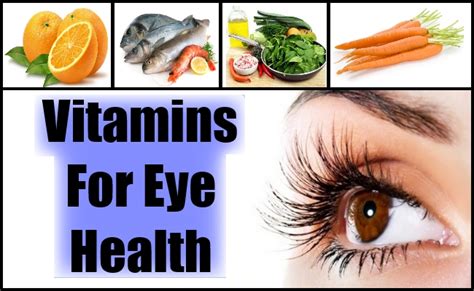Vitamin A is a crucial nutrient that plays a fundamental role in maintaining good vision and overall eye health. In this guide, we will explore the significance of Vitamin A, its sources, benefits, recommended intake, and potential risks of deficiency or excess. Whether you’re curious about how Vitamin A supports night vision or want to understand its role in preventing eye diseases, this guide covers everything you need to know.
What is Vitamin A?
Vitamin A is a fat-soluble vitamin that exists in two primary forms: retinol (preformed Vitamin A) and carotenoids (provitamin A). Retinol is found in animal products like liver, eggs, and dairy, while carotenoids, such as beta-carotene, are found in colorful fruits and vegetables.
How Does Vitamin A Impact Eye Health?
Vitamin A is essential for several key functions related to vision. It contributes to the maintenance of clear corneas, which is crucial for good vision. Additionally, it supports the function of the retina—the light-sensitive layer at the back of the eye—enabling it to convert light into nerve signals that are processed by the brain as vision.
What Happens if You Have a Vitamin A Deficiency?
A deficiency in Vitamin A can lead to a condition known as night blindness, where it becomes difficult to see in low-light conditions. In severe cases, it can cause xerophthalmia, a condition characterized by dryness of the eyes, corneal ulcers, and even blindness.
How Can You Tell if You’re Deficient in Vitamin A?
Symptoms of Vitamin A deficiency may include difficulty seeing in low light, dry eyes, and changes in the skin, such as roughness or dryness. Blood tests can also confirm levels of Vitamin A in the body.
What Are the Best Sources of Vitamin A?
Vitamin A can be obtained from both animal and plant sources. Rich animal sources include liver, dairy products, and eggs, while colorful fruits and vegetables such as carrots, sweet potatoes, and spinach provide beta-carotene, which the body converts into Vitamin A.
How Much Vitamin A Do You Need Daily?
The recommended daily intake of Vitamin A varies by age and sex. For adult men, it’s around 900 micrograms per day, while adult women need about 700 micrograms per day. Pregnant women may need slightly more to support fetal development.
Can You Get Too Much Vitamin A?
Excessive intake of Vitamin A, particularly from supplements, can lead to toxicity. Symptoms may include nausea, headache, dizziness, and in severe cases, liver damage. It’s essential to follow recommended daily allowances and avoid high-dose supplements without medical supervision.
How Does Vitamin A Support the Immune System?
Beyond eye health, Vitamin A plays a vital role in supporting the immune system. It helps maintain the integrity of mucous membranes, which serve as a barrier to infection in the respiratory, gastrointestinal, and urinary tracts.
Are There Special Considerations for Children and Vitamin A?
Children are particularly vulnerable to Vitamin A deficiency, which can impair growth and development, as well as vision. Ensuring they consume adequate amounts through a balanced diet is crucial for their overall health.
What Role Does Vitamin A Play in Aging and Eye Diseases?
As we age, maintaining adequate Vitamin A levels becomes increasingly important for eye health. It’s been linked to reducing the risk of age-related macular degeneration (AMD), a leading cause of vision loss in older adults.
Can Vitamin A Supplements Help Improve Vision?
While Vitamin A supplements are beneficial for those with deficiencies, they do not typically enhance vision beyond normal levels in individuals already consuming adequate amounts through their diet.
How Can Vegetarians and Vegans Ensure They Get Enough Vitamin A?
Vegetarians and vegans can obtain sufficient Vitamin A by consuming plant-based sources rich in beta-carotene, such as carrots, sweet potatoes, and leafy greens. Including these foods regularly in their diet helps ensure they meet their nutritional needs.
Are There Any Interactions Between Vitamin A and Medications?
Some medications, such as isotretinoin (used to treat acne) and certain cholesterol-lowering drugs, may interact with Vitamin A supplements. It’s essential to discuss any supplements with your healthcare provider, especially if you are taking medications regularly.

